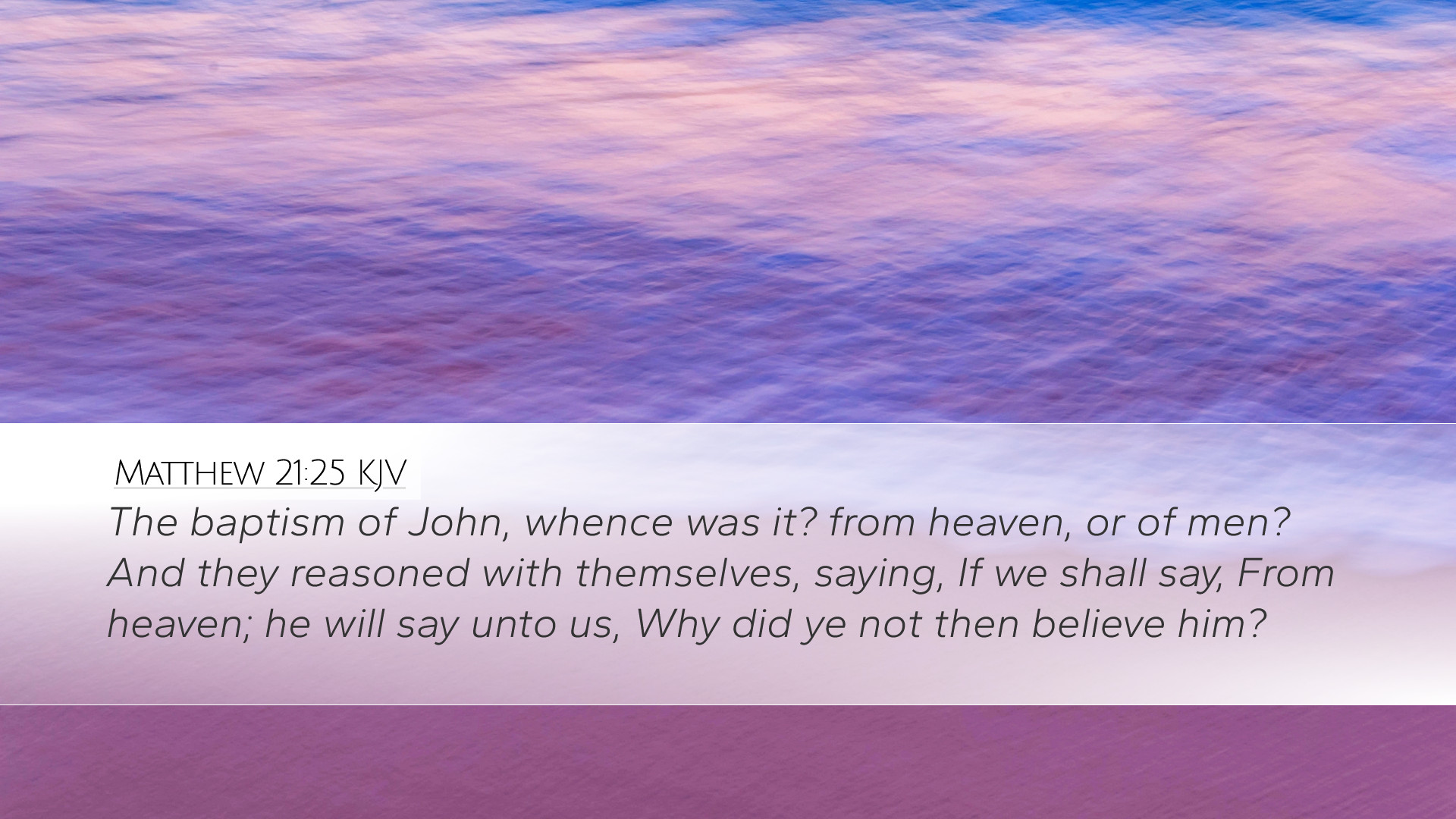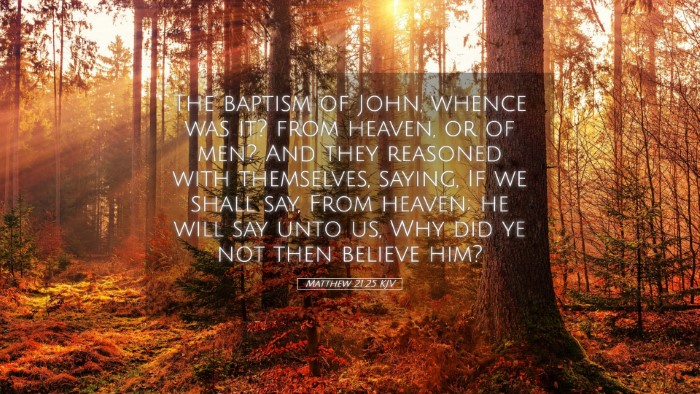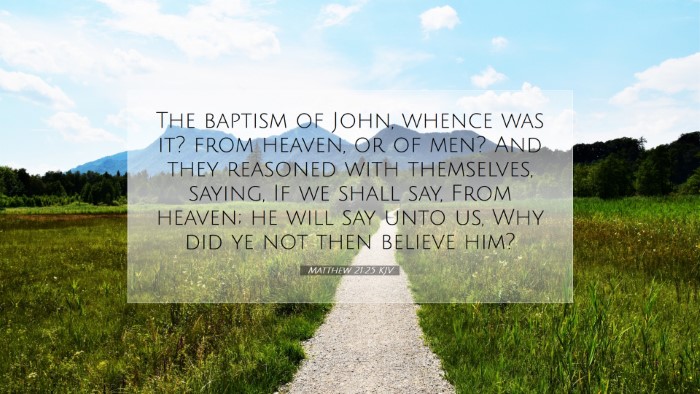Commentary on Matthew 21:25
Bible Verse: Matthew 21:25 - "The baptism of John, whence was it? from heaven, or of men?"
Contextual Overview
This verse occurs in a pivotal moment during the ministry of Jesus, where He is confronted by the religious leaders in Jerusalem. The tension is palpable as they challenge His authority, seeking to entrap Him in His words.
The inquiry about John the Baptist reflects a broader concern regarding the legitimacy of prophetic voices and baptism. As Jesus is questioned, He deftly turns the challenge back on the questioners, compelling them to reflect on their understanding of divine authority versus human tradition.
The Authority of Jesus Examined
Matthew Henry expounds on the audacity of the chief priests and elders who confront Jesus. They demand to know by what authority He performs His miracles and teaches. This reflects their distrust and challenge to a new wave of spiritual authority that deviates from traditional norms.
In this context, the question about John’s baptism is not merely an inquiry into the source of his authority but rather a critical examination of the prophetic tradition itself.
Insights from Albert Barnes
Albert Barnes emphasizes the significance of the question posed by Jesus. By referencing John's baptism, Jesus shifts the focus from Himself to John, a figure they all recognized as a prophet. Barnes notes that this tactic exposes their own hypocrisy; they cannot deny John’s authority without implicating themselves.
- Challenge of Authority: The leaders are caught in a dilemma; recognizing John's divine appointment would validate Jesus' ministry.
- Dilemma of Discipleship: By refusing to answer, they reveal their heart: a fear of losing power over the people.
Exegesis by Adam Clarke
Adam Clarke offers a deeper theological insight into the nature of baptism as a sign of divine calling. He discusses how the baptism of John represented a transition from the old covenant to the new. John was the forerunner, preparing the way for Jesus, and his ministry was theologically significant.
Clarke posits that this inquiry into John's authority reflects larger themes of recognition and rejection of prophetic voices in the Christian narrative. He notes that failure to recognize God's work in John ultimately leads to a failure to recognize Jesus.
Theological Implications
This passage holds profound implications for understanding authority in the church. It invites pastors and theologians to reflect on how questions of authority can reveal deeper truths about faith and discipleship. It illustrates the human tendency to cling to tradition at the cost of recognizing God's present action.
- Human Vs. Divine Authority: The distinction that Jesus makes between 'from heaven' and 'of men' underscores the necessity of discerning divine authority in leadership.
- Reflection on Prophets: The narrative invites theological reflection on modern prophets and movements. It challenges contemporary believers to assess what voices they heed.
Application to Modern Faith Communities
For today’s church leaders, this passage serves as a poignant reminder of the need for discernment in both doctrine and community life. It challenges faith leaders to foster environments where divine authority is recognized and adhered to over mere tradition or human opinion.
Pastors are encouraged to evaluate their ministries in light of this passage—are they more concerned with maintaining control and authority, or are they willing to follow where God leads, even when it disrupts the status quo?
- Encouraging Inquiry: This scripture invites congregations to ask difficult questions about faith, authority, and practice.
- Fostering Openness: It challenges leaders to be open to the movement of the Spirit, even when it comes through unexpected vessels.
Conclusion
Matthew 21:25 encapsulates the tension between human authority and divine revelation. It serves as a critical reminder for both theological students and church leaders to seek God's truth and to be wary of human traditions that may blind them to the work of the Holy Spirit.
By engaging with both the historical context and the theological implications of this verse, scholars and practitioners alike are invited to deepen their understanding of God's ongoing revelation in and through His chosen servants.


